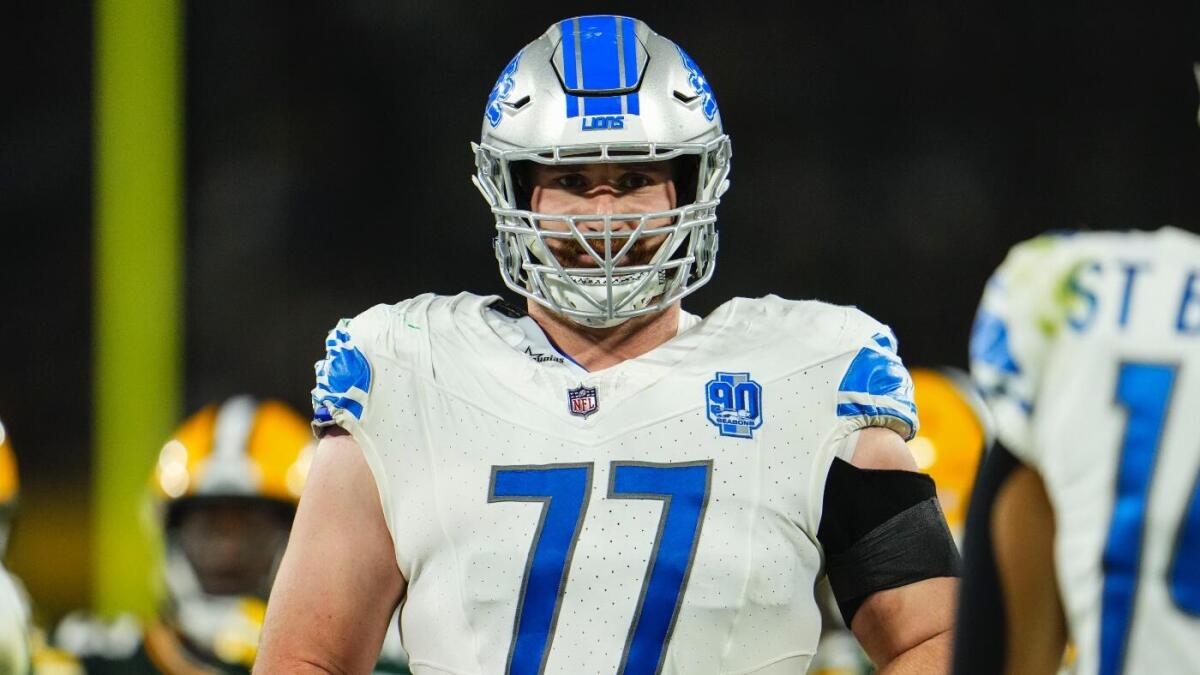Navigating Transition: The Impact of Frank Ragnow’s Retirement on the Detroit Lions
Frank Ragnow’s retirement at the age of 29 marks a significant turning point for the Detroit Lions, echo far beyond the loss of a single player. His exit touches on leadership, team dynamics, and the practical realities of filling a core position in a high-stakes environment. This analysis explores the multifaceted impact of Ragnow’s departure, from the emotional to the strategic, and assesses what lies ahead for the Lions as they face the challenge of redefining their offensive identity.
—
A Pillar of Strength and Leadership
Frank Ragnow was not merely a player in the Lions’ roster; he was the backbone of their offensive line and a beacon of resilience. Drafted seven seasons ago, his growth into a four-time Pro Bowler was a testament to his toughness and skill. Playing through severe injuries, such as a fractured throat in 2021, underscored his physical and mental fortitude. But it wasn’t just about brute strength. His leadership on and off the field added a steadying influence to the team, shaping the culture in Detroit’s locker room and community.
Head coach Dan Campbell’s heartfelt acclaim points to Ragnow’s charisma and reliability. Campbell’s recounting of game-defining moments—like his pivotal block against Tampa Bay’s Vita Vea—illustrates how Ragnow’s performance transcended typical responsibilities. Such moments reveal an athlete who thrived under pressure, elevating both his teammates and the team’s prospects. His legacy is defined by this blend of athletic excellence and inspirational leadership.
—
Behind the Sudden Decision: Health Over Career
The surprise surrounding Ragnow’s retirement largely stems from his relatively young age and professional peak. Yet, peeling back the layers reveals a story shaped by recurring injuries—groin strains, calf troubles, and meniscus surgery—that collectively wore down his capacity to compete at the highest level. The ongoing physical toll demanded a reevaluation of priorities, with Ragnow choosing health and longevity over continued play.
Dan Campbell’s firm dismissal of contract dispute rumors is crucial here. It clarifies that Ragnow’s retirement was a personal and health-driven decision, not a consequence of professional disagreements or dissatisfaction. This distinction preserves respect for Ragnow’s character and maintains the integrity of his relationship with the organization.
—
Emotional Reverberations: More than Just Losing a Player
The emotional aftermath of Ragnow’s exit is palpable within the Lions’ ecosystem. Dan Campbell’s vulnerable tributes revealed a bond that went beyond conventional coach-player dynamics. Ragnow symbolized a core around which the team’s revived identity was constructed, making his absence feel deeply personal.
This emotional response reflects how football’s human element often gets overshadowed by spectacle. The heartfelt farewells and visible grief speak to the unique camaraderie professional sports can foster. For the Lions, adjusting to this void is not only tactical but psychological, as they must find ways to reforge cohesion and morale without a leader who embodied those qualities so unequivocally.
—
Tactical Challenges: Rebuilding the Offensive Line
Replacing Frank Ragnow on the field introduces one of Detroit’s most pressing challenges. The center position is crucial—not just as a physical anchor but as a cerebral command center for protection schemes and run blockers. The stability of the offensive line directly influences quarterback Jared Goff’s effectiveness and the overall offensive rhythm.
Lions’ plans to develop rookie Tate Ratledge, alongside veterans Graham Glasgow, Kingsley Eguakun, and Miles Frazier, signal a multipronged approach. However, none can match Ragnow’s proven blend of skill and leadership just yet. This creates uncertainty and puts a spotlight on coaching and player development as Detroit navigates its offensive line rebuilding. The transition’s success will hinge on how quickly the new lineup can gel under pressure.
—
Enduring Legacy: Leadership and Inspiration Beyond the Game
Though his playing days ended prematurely, Ragnow’s legacy as a Lions’ icon is firmly cemented. His resilience, leadership, and dedication form a blueprint for future players. This influence stretches beyond Detroit, recognized and respected by peers and opponents alike, including figures like Vikings defensive tackle Harrison Phillips.
Stories of camaraderie and humor add texture to his legacy, humanizing a player often seen merely in the context of physical dominance. These narratives enrich the team lore and ensure Ragnow will be remembered as a cornerstone of the Lions’ journey, embodying the spirit of grit and commitment.
—
Moving Forward: The Lions’ Path to Renewal
The post-Ragnow era positions the Detroit Lions at a crossroads. Beyond filling the center position, the team faces broader questions about quarterback performance, rookie integration, and sustaining the momentum of recent rebuild efforts. Dan Campbell’s declaration that “the train rolls on” captures the resilience required during this pivotal period.
As the Lions work to establish new leadership and reinforce their foundational units, this transition will test their strategic depth and adaptability. How well they respond could define the team’s trajectory in the near future—turning a moment of loss into opportunity for growth.
—
Conclusion: Embracing Change as a Catalyst for Growth
Frank Ragnow’s retirement marks the end of a distinctive era for the Detroit Lions, closing a chapter filled with determination and leadership. While his absence leaves a tangible void, it simultaneously opens space for renewal. The Lions now face the dual task of honoring Ragnow’s impact by fostering resilience and evolving their core lineup.
This turning point embodies the enduring nature of sports—where every farewell kindles a new beginning. For Detroit, the challenge lies not just in replacement, but in harnessing the spirit Ragnow represented. The road ahead is uncertain but ripe with potential, a test of character and vision that will shape the franchise’s future.











